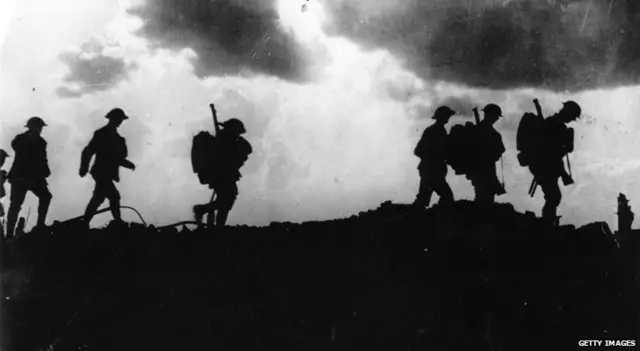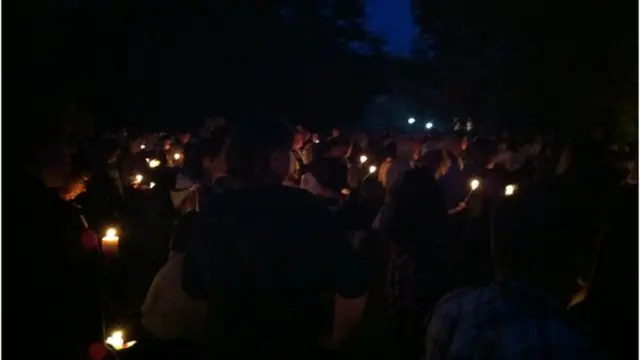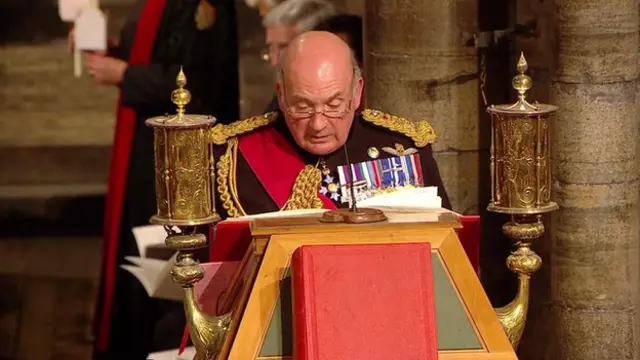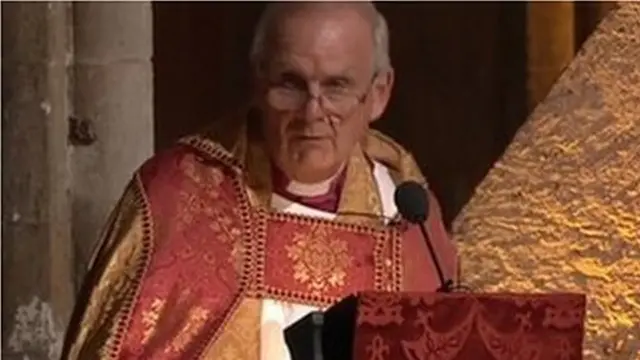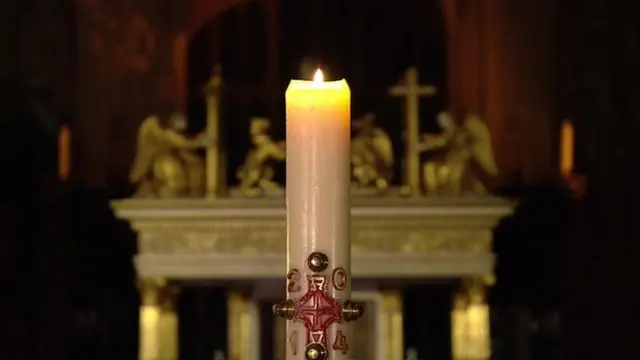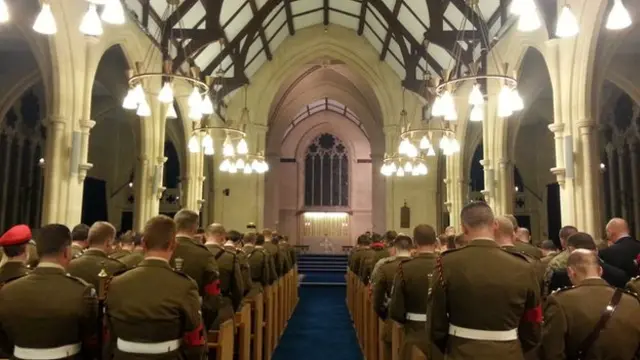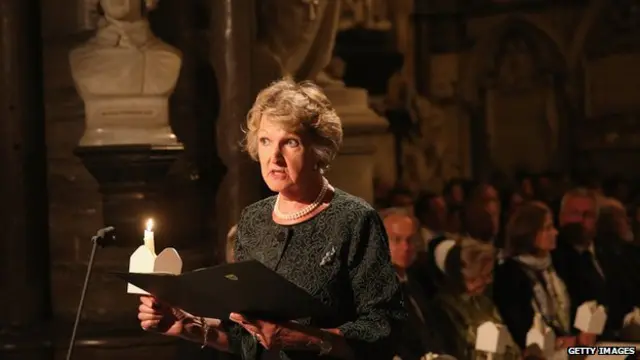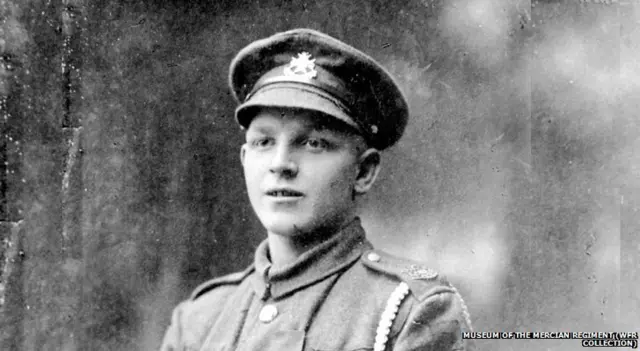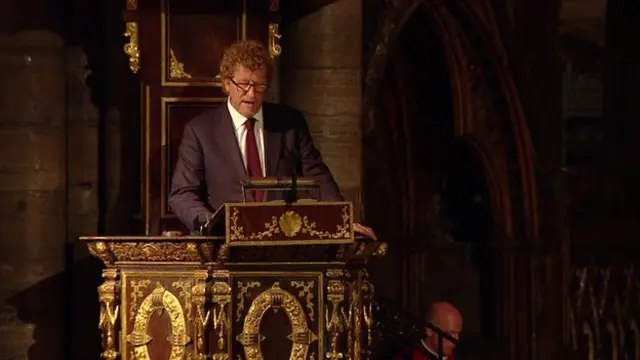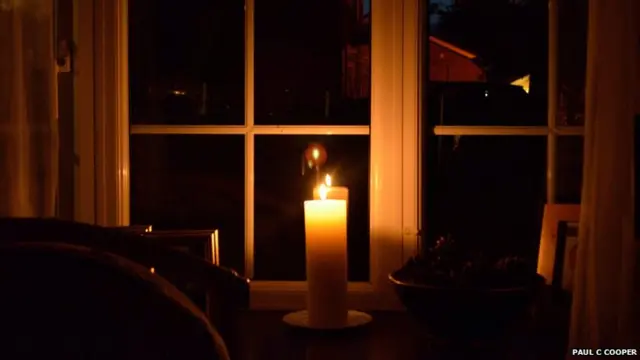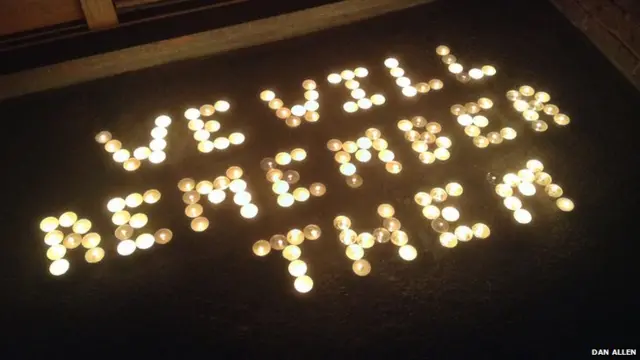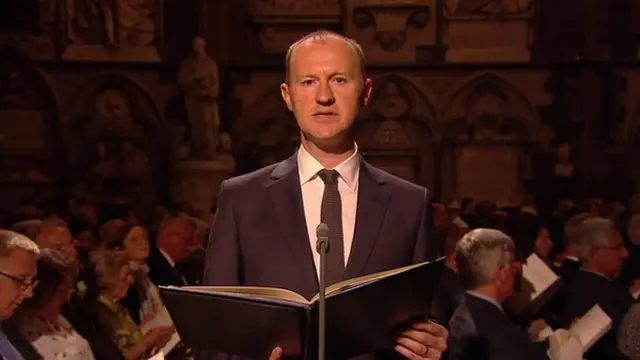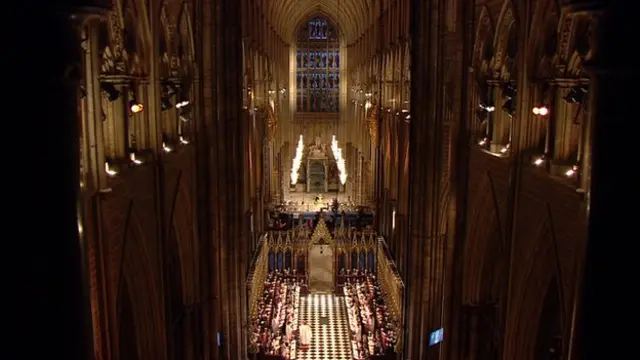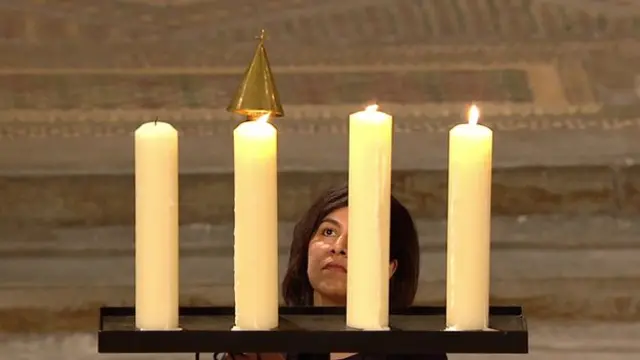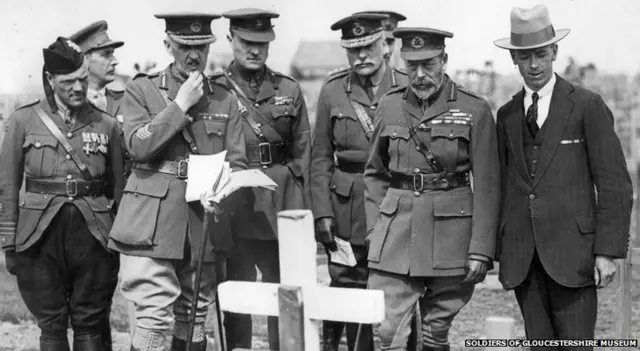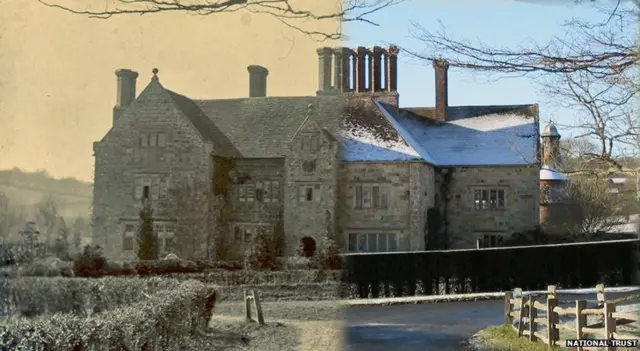Postpublished at 23:45 BST 4 August 2014
That ends our live coverage of events commemorating the centenary of Britain's entry into World War One around the UK and overseas.
At Glasgow Cathedral David Cameron said: "It's right to remember that there was a cause that these young men volunteered for and that was to stop the domination of Europe by one power and to go to the defence of a defenceless country, Belgium."
At Liege Prince William said: "The fact that the presidents of Germany and Austria are here today and that other nations, then enemies, are here too, bears testimony to the power of reconciliation."

